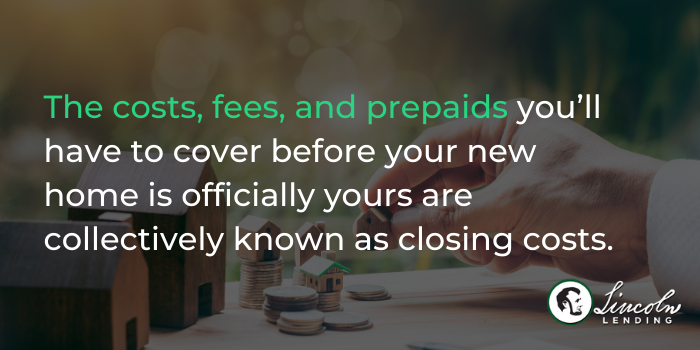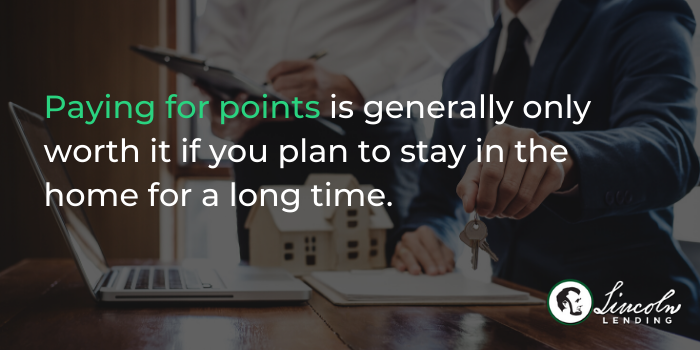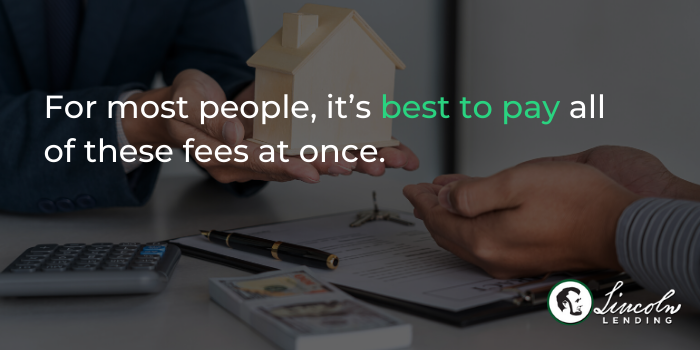Purchasing a home is often the biggest single investment you will make in your lifetime. While you’ve probably put a great deal of consideration toward how much to save for a down payment, you may not be aware of the numerous other costs and fees you may have to pay before you close on your new home.
In this article, we’ll explain some common closing costs and fees.
What Are Closing Costs?
The costs, fees, and prepaids you’ll have to cover before your new home is officially yours are collectively known as closing costs. In short, they are fees you’ll pay to the bank, the title company, the lender, your local government, and third parties associated with the aforementioned entities.

The costs create a record that shows that your home was sold to you, and they make all of the paperwork official. Which fees you’ll pay can vary depending on where you live and what type of loan you secured. In general, expect them to total 3-5% of the amount of that loan. So, if you’re buying a $200,000 house, you’d pay between $6,000 and $10,000 in closing costs.
Closing Costs: A Breakdown
Some closing costs that you may have to pay are:
- Application fee – Paid to the mortgage lender; covers the cost of credit checks and other administrative work associated with processing your loan application.
- Appraisal fee – Paid to an independent appraiser who is hired by the lender to make sure that the property you’re buying is really worth what the bank is lending you.
- Discount points – Discount points are fees paid directly to the lender by the buyer at closing in exchange for a reduced interest rate. This is also called “buying down the rate.” One point costs 1% of your mortgage amount (or $1,000 for every $100,000). Paying for points is generally only worth it if you plan to stay in the home for a long time.

-
- FHA, VA and USDA fees – If your loan is insured by the Federal Housing Administration, you’ll have to pay FHA mortgage insurance premiums. If it’s guaranteed by the Department of Veterans Affairs or the U.S. Department of Agriculture, you’ll normally pay guarantee fees. In addition to monthly premiums, the FHA typically requires an upfront funding fee of 1.75% of the loan amount. The USDA loan upfront guarantee fee is about 1%. VA loan guarantee fee varies between 1.4% to 3.6% of the loan amount, depending on the size of your down payment, term of the loan, and whether or not you have obtained a VA loan before. Disabled Veterans are usually exempt from the funding fee.
- Homeowners association fees – If you are moving into an area with an active homeowners association, you may be required to pay prorated HOA fees at closing.
- Homeowners insurance – The lender will require that you purchase a full year of homeowner’s insurance. This will cover the property in case of vandalism, damage, or other disaster. This is also referred to as hazard insurance.
- Lender’s title insurance – A policy protecting the lender from losses in the event that someone makes a claim against your property. (You may also want to buy an owner’s policy like this to protect yourself. See “owner’s title insurance.”)
- Loan origination fee – Also known as an underwriting fee, the loan origination fee is a charge by the lender for evaluating and preparing your mortgage loan. This can cover document preparation, notary fees, and the lender’s attorney fees.
- Owner’s title insurance – A policy protecting you from losses in the event that someone makes a claim against your property after closing.
- Prepaid interest – The lender requires you to pay the interest that your loan will generate from the date of the closing to the end of the month. So, if you close on July 3rd, be prepared to pay the interest through July 31st.
- Private mortgage insurance (PMI) – PMI is paid to your bank’s insurance company. If you obtain a Conventional loan and put down less than 20% of the home’s value, you will most likely be required to buy PMI. It protects the lender if they have to repossess the property and can't sell the house for the remaining loan balance. PMI can be paid up-front, monthly, or a combination of both. Most government loan programs like FHA, RD, HUD-184, have a mortgage insurance premium (MIP). This is pretty much the same thing as PMI, except the premium is paid to a government agency instead of a private mortgage insurance company.
- Property taxes – You should be prepared to pay your city and county taxes from the closing date through the end of the year.
- Title search fee – Paid to a title company who searches deeds and other records to make sure that there are no ownership disputes or debts taken against the property.
- Transfer tax – Taxes charged by the state to transfer the title from the seller to you.
When Do You Pay the Closing Costs and Fees?
For most people, it’s best to pay all of these fees at once. However, if you can’t afford that, then three options you might consider are:
1. See if the Seller is Willing to Help You Pay Some of the Costs
The majority of the closing costs are paid by the buyer — though there are some, like the real estate agent’s commission and transfer tax, that the seller typically pays. If it’s a buyer’s market and they’re eager to sell, you may be able to convince them to pay some of your closing costs. Sometimes, sellers may not be willing to pay any of the closing costs. Your realtor and lender can help you decide whether or not you should ask the seller to pay your closing costs.

2. Roll the Closing Costs into Your Loan
You can often roll closing costs into your loan on refinances. You cannot roll closing costs into the loan on purchases. You may be able to opt for a higher interest rate and ask the lender to cover part or all of your closing costs. Your lender can help you determine if this is an option for you.
3. Negotiating with your Lender to See if They’re Willing to Waive Certain Fees
Lenders can sometimes waive fees to help out borrowers struggling with money for closing costs. It’s not something you should count on, but it doesn’t hurt to ask. Also, not all closing costs and fees are strictly necessary in every situation. For example, a pest inspection is not usually required on refinances. Also, you may not need flood plain insurance if your home is not in a designated flood zone.
Learn More About Closing Costs and Fees
If all of this sounds hard to keep straight, don’t worry! The Consumer Financial Protection Bureau requires that all lenders provide buyers with a Loan Estimate, which is a document detailing all of the costs and fees associated with a prospective loan.
Lenders must provide the document to borrowers within three days of receiving the borrower’s application. You’ll also receive a similar document three days before your scheduled closing. The final document will show any changes that the lender made, as well as any agreements that you’ve reached with the seller or the lender.
Both documents are legally binding, so look them over carefully with the assistance of your lender and realtor. If you have questions at any time throughout the process, get in touch with the loan experts at Lincoln Lending. We’re passionate about educating our customers, so we’re happy to answer questions and walk through the Loan Estimate document together.

